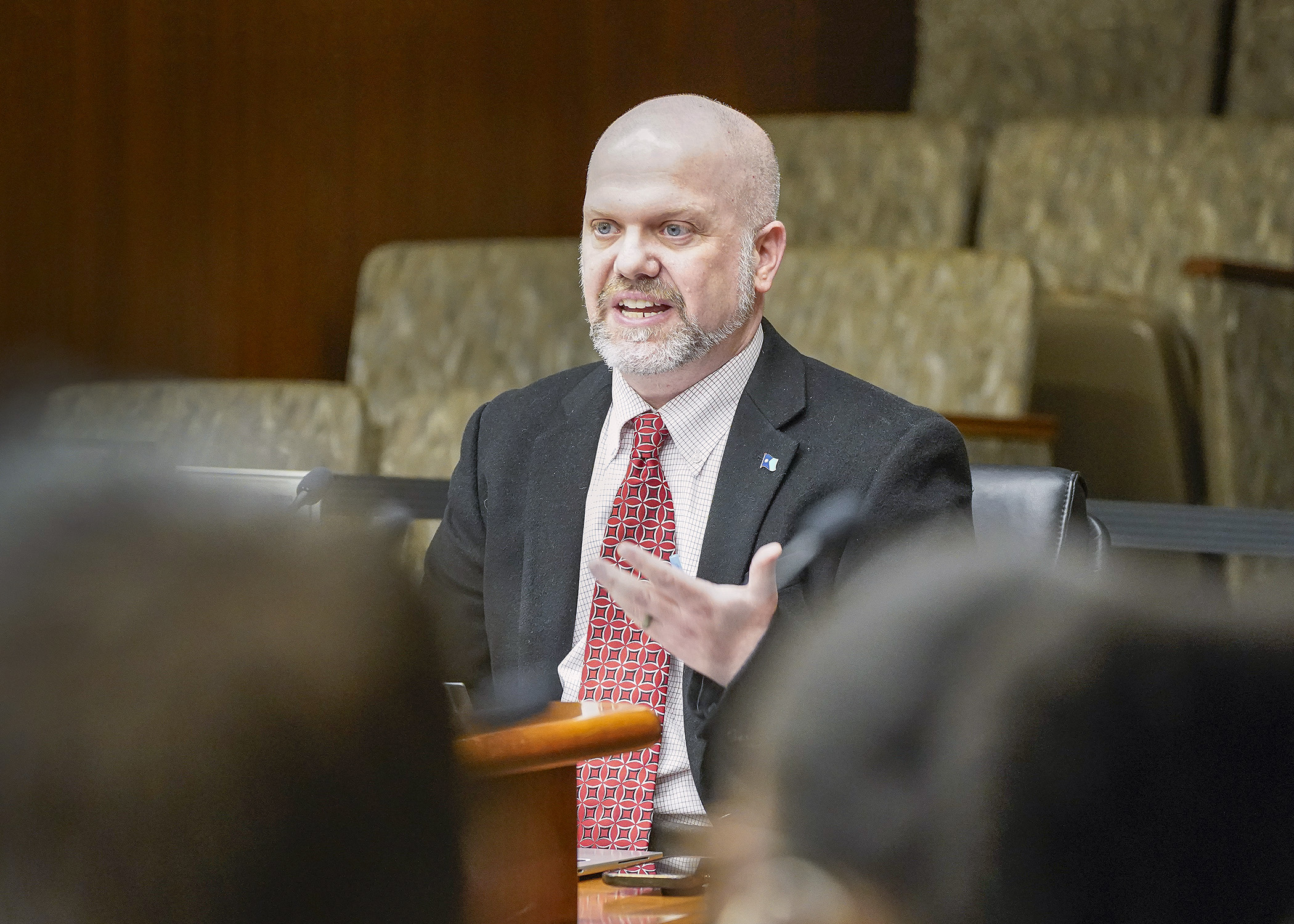Ranked choice voting, local assistance highlight elections supplemental funding bill

The Office of the Secretary of State is expected to receive about two-thirds of supplemental funding allocated for elections functions.
Much of that would tie into a policy provision that would let cities, counties and school districts use ranked choice voting for local offices within the political subdivision.
With a supplemental spending target of $500,000 in fiscal year 2025, HF4411, as amended, would provide $209,000 for ranked choice voting purposes.
Approved Wednesday by the House Elections Finance and Policy Committee on a split-voice vote, the bill’s next stop is the House Ways and Means Committee.
The secretary of state’s office would also receive an additional $127,000 for the voting operations, technology, and election resources account that assists local governments with certain election-related expenses.
Other financial provisions would transfer $144,000 from the General Fund to the Voting Rights Act cost sharing account in the special revenue fund — money that could be used by local governments if the “Minnesota Voting Rights Act” becomes law — and $20,000 from the General Fund would go to the Campaign Finance and Public Disclosure Board to standardize local election reporting requirements created in the bill. The latter comes from HF3645, sponsored by Rep. Nathan Coulter (DFL-Bloomington).
Some internal transfers are also included in the bill, modifying laws from 2021 and 2023.
[MORE: View the spreadsheet]
“I feel like we’ve made efforts to work across the aisle. I do think there’s great provisions in this bill that have support from people across the political spectrum throughout Minnesota,” said Rep. Mike Freiberg (DFL-Golden Valley), the bill sponsor.
Rep. Paul Torkelson (R-Hanska) disagrees, bemoaning the bill is not bipartisan, something he said the committee has lacked in 2023 and 2024. “This has long-term impacts on the voting process in Minnesota and I would hope that this isn’t the beginning of a very partisan process as we move into the future.”
Under a ranked choice voting system, multiple candidates for a particular office appear on a ballot, and voters rank them in order of their preference. If no candidate receives more than half of the first-choice votes, the candidate with the fewest votes is eliminated and those who ranked them first instead have their vote go to their second choice. The process continues until one candidate achieves the required 50%.
In addition to increasing voter turnout, Rep. Cedrick Frazier (DFL-New Hope), who sponsors HF3276, told the committee last month that benefits of the change would include candidates needing a broader range of support and running on policy solutions rather than personal attacks because second-and third-choice votes may be needed.
Amendments unsuccessfully offered by Torkelson would have required local voters to enact ranked choice voting via a ballot question and removed ranked choice voting from the bill because he said it is moving as a standalone bill. “I think it’s a great idea that it moves separately, that we get a straight up or down vote on the floor on ranked choice voting rather than hide it in this bill,” he said.
“Bills move in multiple places all the time,” Freiberg countered.
Although an amendment from Rep. Pam Altendorf (R-Red Wing) was rejected, Freiberg pledged to look into the idea of ensuring election judges are not considered an employee of the local jurisdiction and subject to requirements required of a condition of employment for a permanent employee. An amendment on the House Floor is a possibility.
Related Articles
Search Session Daily
Advanced Search OptionsPriority Dailies
Speaker Emerita Melissa Hortman, husband killed in attack
By HPIS Staff House Speaker Emerita Melissa Hortman (DFL-Brooklyn Park) and her husband, Mark, were fatally shot in their home early Saturday morning.
Gov. Tim Walz announced the news dur...
House Speaker Emerita Melissa Hortman (DFL-Brooklyn Park) and her husband, Mark, were fatally shot in their home early Saturday morning.
Gov. Tim Walz announced the news dur...
Lawmakers deliver budget bills to governor's desk in one-day special session
By Mike Cook About that talk of needing all 21 hours left in a legislative day to complete a special session?
House members were more than up to the challenge Monday. Beginning at 10 a.m...
About that talk of needing all 21 hours left in a legislative day to complete a special session?
House members were more than up to the challenge Monday. Beginning at 10 a.m...